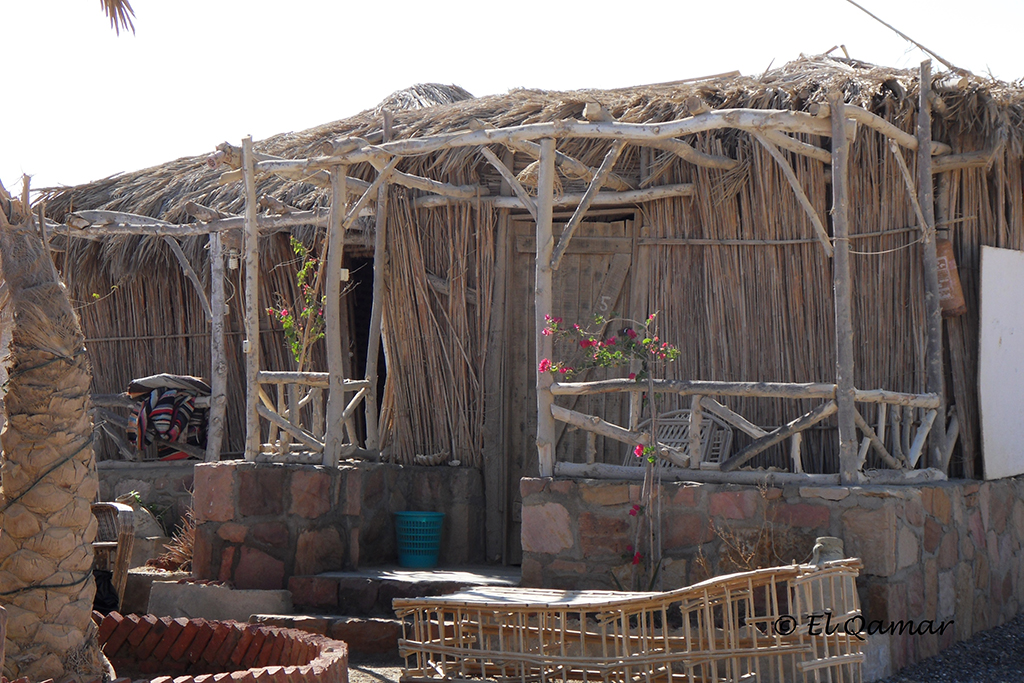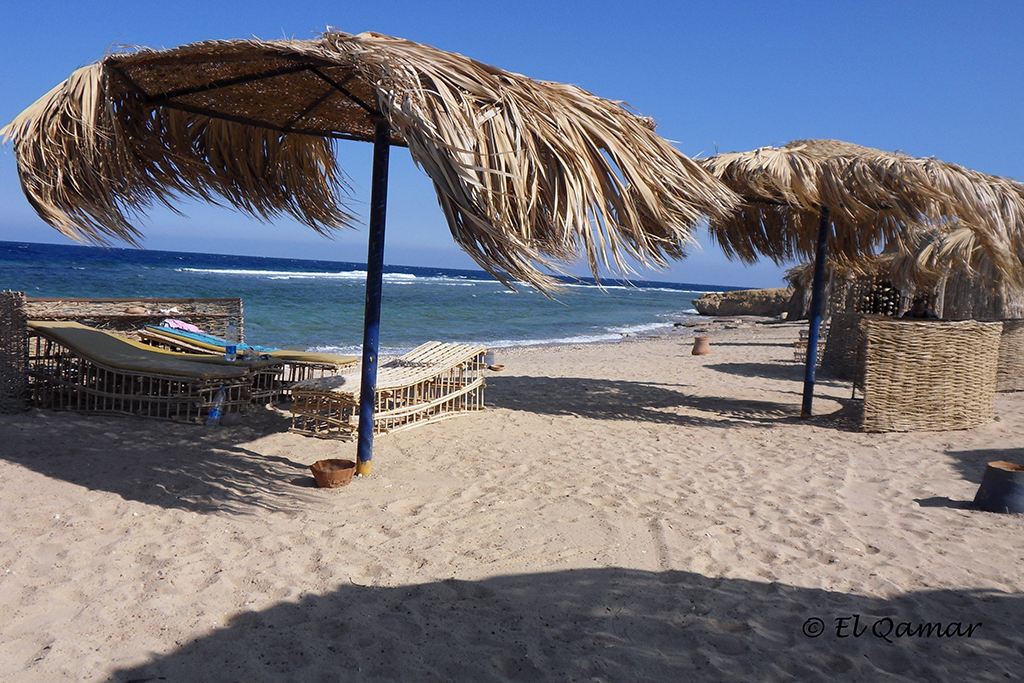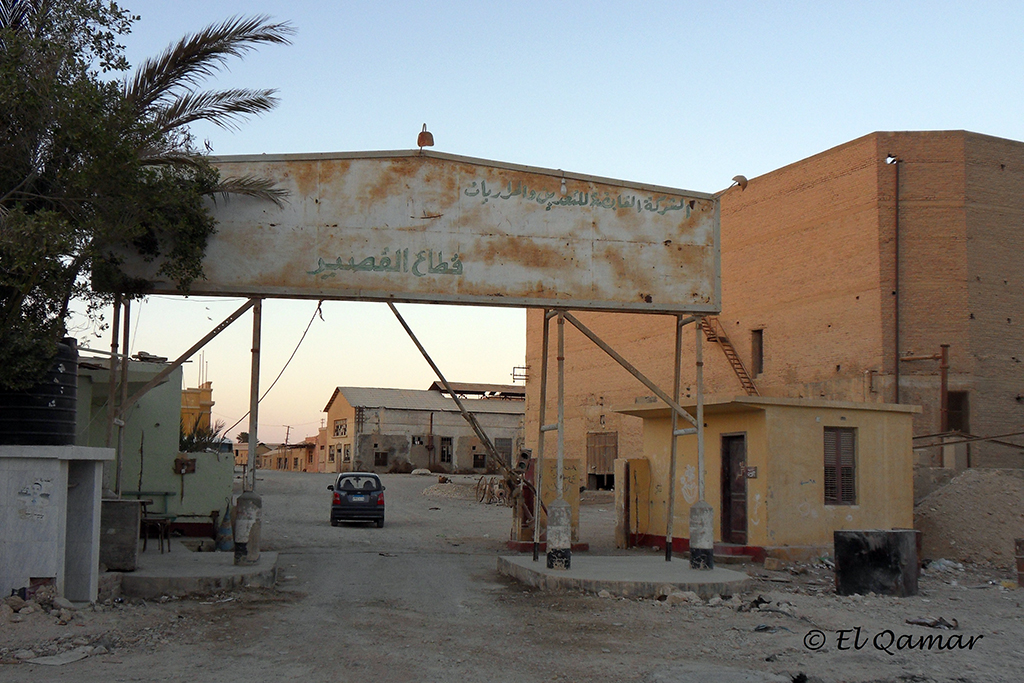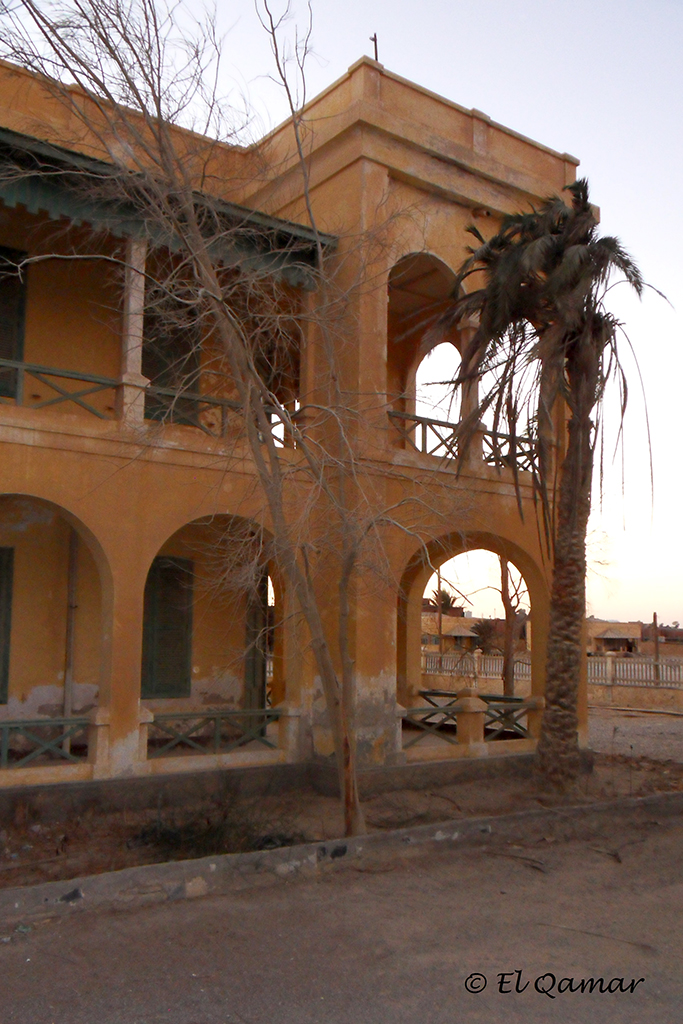By El-Qamar
Photography by El-Qamar
In November, my cycling mate and I once again cycled to El Quseir. The trip was quiet, the tail wind helped us once more and we arrived at our goal, again, within just about four hours riding. You can read about our first trip right here.
A shower and a bit of relaxation were in order; the camp a very simple one.
I can’t imagine how divers can endure staying here for prolonged periods of time; the facilities are actually rather basic. The accommodation is made up of simple reed huts covered with palm leafs, and the washrooms are shared, but they do have running water. There also seemed to be a power cut when we were there!. There are huts on the beach as well, and I imagine they must be very romantic for couples in love, spending the night in one of them going to sleep to to the sound of the see… as long as mosquitoes can be kept at bay! The location itself is impressive, and the view of the mountains, the desert and the sea are gorgeous.
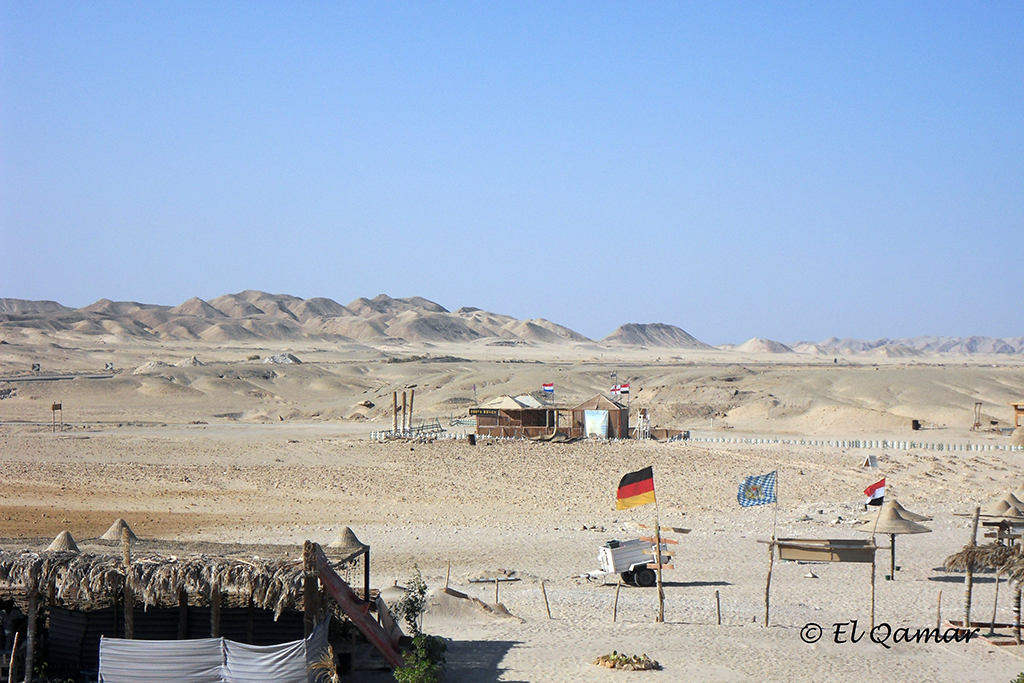
Our camp site, with nothing but the sky the desert and the Red Sea as far as the eye can see. Courtesy of El-Qamar.
My desire for variety, knowledge and culture pushed me to see more from El Quesir this time around. I’ve known for some time that phosphate was mined here and that Italians had invested heavily in its mining. I wanted to see the premises that were built by the Italians around 100 years ago (today, the phosphate mining takes place about 25km north of El Quesir). Two Germans who live in El Quesir took us on winding roads and through dusty streets to the site of the factory.
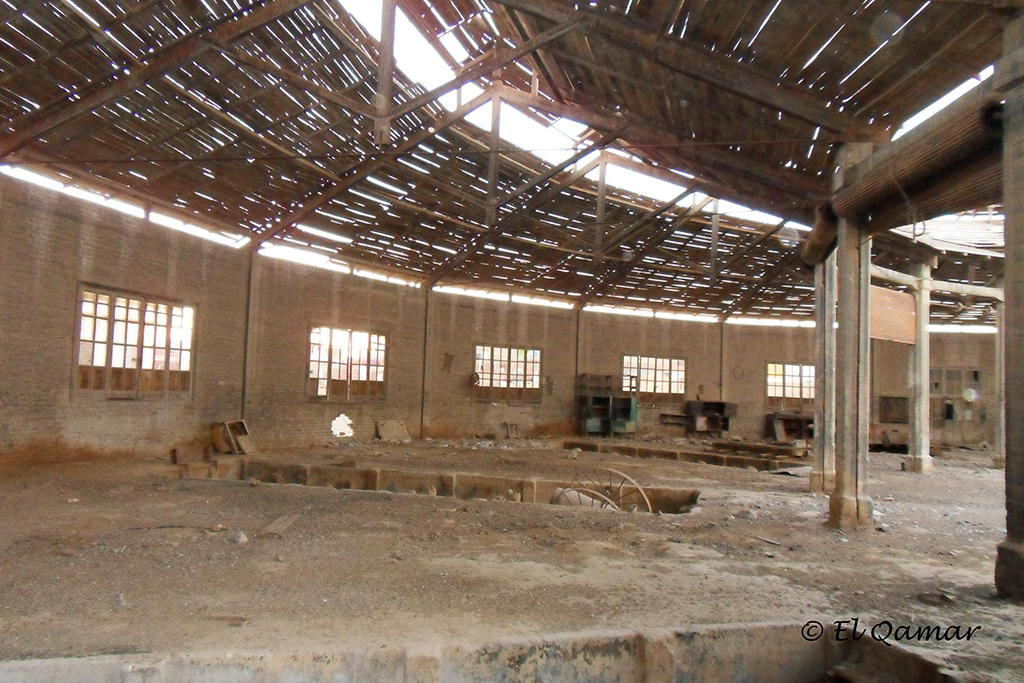
The vast empty space in one of the buildings of the Holding Company for Mining and Refractories in El Quseir. Courtesy of El-Qamar.
Full of curiosity, amazement and wonder, we cautiously entered the ruined factory hall. We peeked through broken windows, crossed the huge square between factory, administration, villas and the church. Nowadays, it’s a ghost town, hastily left as it seems; but it’s hard not to imagine how this place must have been; bustling and buzzing with Italian language and culture, Egyptian labourers going about their daily routine, balmy evenings on the veranda with a nice cold drink, and arduous heat of the mornings. The administration building still shows some stuffed, dust-covered hunting trophies exposed to decay. I was especially taken with a Tuscany villa: vaulted ceilings, verandas, a bright yellow façade, palm trees, a big garden, and a sea view… The only building that has been renovated and is still in use is the church, now serving as Coptic church.
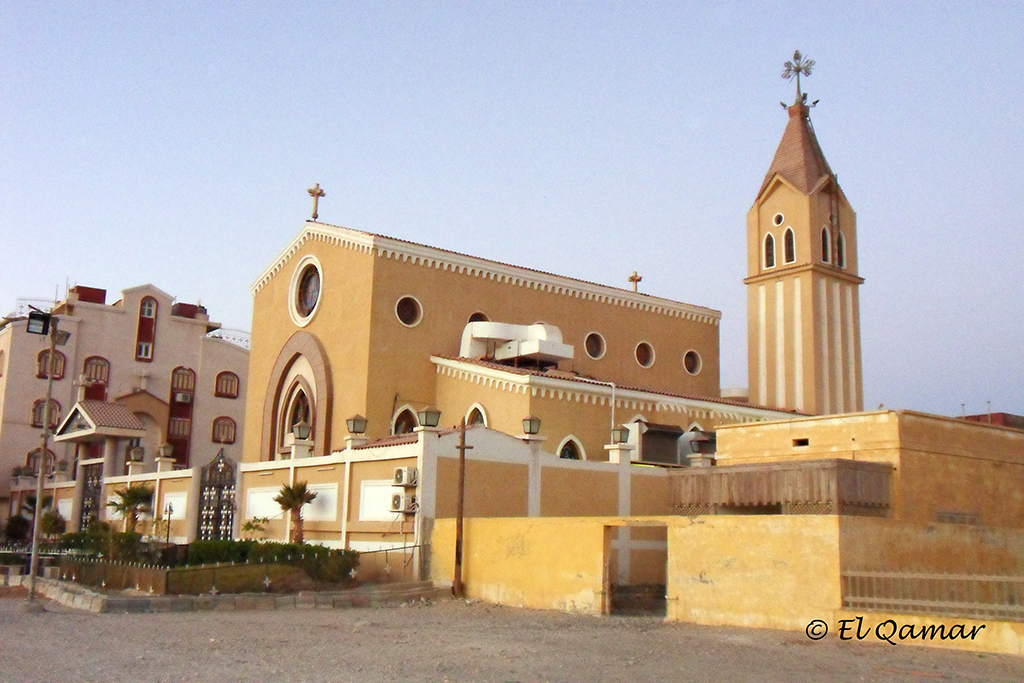
The only restored building in the factory compound is the church, now serving as a Coptic church. Courtesy of El-Qamar.
I was delighted to have finally received some “brain food” and once more felt convinced, that this region has much more to offer than only sun, beach, sea and diving. This day was exactly to my taste: sports, culture, nice people and a fish dinner on the beach under a starlit sky to wrap up the day.
By the way, El Quesir used to be an important port in the ancient world and in the middle age, and here and there are discoveries waiting to be admired.
——————————————————————————————
El Qamar hails from one of the smallest countries in the world, Liechtenstein.
El-Qamar means “moon” in Arabic which is referred to as something noble, beautiful and precious. I like this name as a pseudonym for a blog from an Arabic speaking country.
You can read more of her posts on her English blog Elsewhere: Living in Hurghada and her German blog (updated more regularly) Anderswo: Leben in Hurghada.
Tags: Biking, Camping, Cycling, Egypt, El Quseir, Featured, Hurghada, Italian, Liechtenstein, Mining, Mountains, Red Sea, Tuscany, Villa
